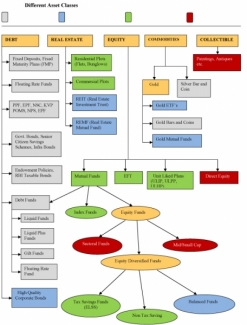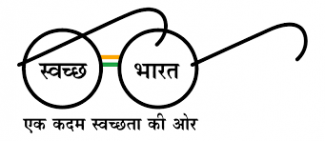We all come across great leaders in our life. Some of the readers of this article also may have either achieved very high levels in life or may be on the path leading to the highest pedestals of leadership be it in business, social life, sports or cultural arena, political life or any other area. When some leaders reach these great heights, they obviously have some great leadership qualities. There are some parachuter leaders also who acquire that position because of their dynastic inheritance. Out of these, some of them got great grooming from their gurus, parents, mentors and finally proved to be great leaders. There are a large number of such examples in the history books about great kings and even in the political arena. I can mention the names of Mukesh Ambani and Kumaramanglam as great business leaders here.
On the other hand, there have been leaders who reached the higher echelons purely on the basis of their hard work, smart work, competency and a long list of leadership qualities. They are grass-rooters. These leaders climbed the ladder step by step, faced difficulties and even failures on the way. But they converted every such failure into a stepping stone to success and reached the zenith. I can easily name Narayan Murthy as a great business leader and Narendra Modi as a great political leader of this variety.
Now we also know the stories of a large number of such great leaders, whether of category A or category B who could not maintain that leadership position for a long time. You will know some such stories in the political arena and a very large number of them in the business environment. It is said that it is not very easy to reach the top but it is much more difficult to stay at the top.
Why such great leaders fail sometimes? I asked this question to some of my friends from IIT Khargpur who are a part of a Special Interest Group “KGPians4Leadership”. I delved upon those points as well as did some thinking on the topic and I came to some conclusions. In order to appreciate these points, you may also think of some Leaders who were great but then they tumbled.
According to me, a large number of leaders are not able to digest their great heights with humbleness and they become arrogant. It is this arrogance that leads to many other negative traits that start becoming the part of personality of this ‘once upon a time’ a great leader. They create an aura of awe around them. Their senior managers don’t feel comfortable in giving frank feedback. They tell only those things to the leader that he/she wishes to listen. Some of these arrogant leaders even become abusive to those who try to tell them the truth and the reality.
This results into drifting away of the sincere, dedicated and competent managers. So the leader is now surrounded by the so called sycophants and ‘Chamchas’ who keep the leader in good humour by giving him/her the rosy picture though that may be far from the reality. By this time, the leader becomes over confident and dictatorial. Among the political leaders, Mrs Indira Gandhi will fit into this category very well.
Now there may be another category of great leaders who continue to remain humble and there is no air of arrogance around them but still they fail. Though they don’t become arrogant but their great strides of success make them overconfident and they take their leadership position for granted, forgetting that nothing is permanent in this world. They become complacent, slack and even lazy because the company or the organization is doing very well. So they stop innovation too, because their product is selling very well in the market. Nokia mobile phones and Kodak may be considered in this category. These companies didn’t innovate themselves with changing times.
Remember that your top class worker may not become top class supervisor. Similarly a top class supervisor may not become a good manager. In house, promotions is a very good philosophy but when any organisation makes quantum jumps and in fact, starts operations in higher orbits, your existing talent may not be good enough. You may have to re-organize, get experts from the market and even from your competitors. And you should hire top managers who are actually smarter than yourself. If you don’t do this, be ready for the slide.
Many leaders while climbing the ladder of leadership, had an excellent connect with their managers, supervisors and even workers. Their Interpersonal relationship was excellent. They remembered the names of their key workers and even had some knowledge about their family members. But then over a period of time, the organisation became so big that it was humanly impossible to maintain that level of connect. So the leadership must innovate new methods of maintaining connect with the people. It could be just a joint birthday celebrations on the last Saturday of the month. You as a leader go there and connect with a large number of them in just 10 minutes. You could invite top performers for weekly breakfast meetings. Many times, the absence of this personal connect and lack of communication lead to failure of Leadership.
When your organisation was small, you were doing probably ten things yourself and were monitoring another ten projects or operations yourself and that too minutely. As the organisation grows, you may be able to cope up with the increasing workload for sometime but not for a long time. So you must learn to delegate. There will definitely be some very important tasks that you may still like to do yourself, and there will be some that you may ‘Delegate and Monitor’ and a large number of them may be in the category of ‘Delegate and Forget’. Those who refuse to delegate must be ready for collapse of the organisation; sooner or later.
These days most of the leaders rely a lot on the data and analytics provided to them to make important decisions. Sometimes, the wrong interpretation of this info derived from the data may lead to wrong decisions and many a times, the overconfidence of these top leaders make them take decisions based on their gut feeling. The failure of Tata’s Nano car may be described under this category.
Today, half of the year 2020 is gone. The times are changing very fast. A mobile phone becomes obsolete every 12 months if not six months. Similarly, the leaders also become obsolete if they don’t keep themselves uptodate with changing times and changing needs and expectations of the customers. Those who keep training themselves through self learning, conferences, seminars and webinars will be in a better position to steer their organization through the turbulence of changing times. Those who refuse to change, learn, unlearn and relearn will become history sooner or later. And if you feel that you are getting old, not able to keep up with technology and the changing times, just retire gracefully and handover your business empire or the political party or the social organization that you created to the new generation. I leave you here. Think yourself; who retired gracefully and retained the respect and dignity and who didn’t ……. despite becoming obsolete.
Inputs from: Prabhakar Singh, Sunil Gaitonde, Souvik Chattarjee, Subodh Shankar, Ravinder Singh, Ramesh Kh, Ms Madhuchanda Ghose. (All are members of KGPians4Leadership)


















